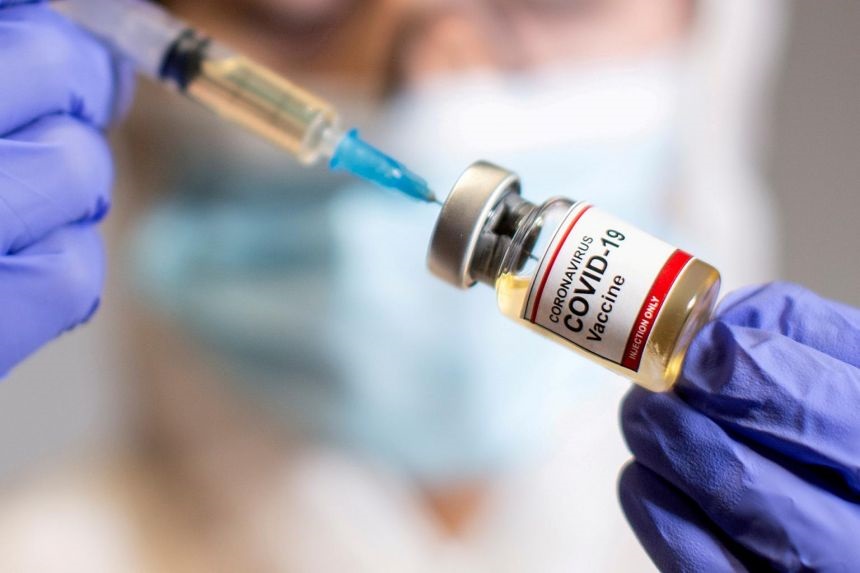Study finds Kenyans losing immunity against new, highly mutated Covid-19 variants.

As the virus continues to evolve, the study warns that many Kenyans remain vulnerable to severe outcomes from new variants.
A new study has revealed that most Kenyans, both vaccinated and those who previously contracted Covid-19, are losing immunity against newer, highly mutated variants of the virus.
Researchers warn that the virus has evolved to such an extent that the protection once offered by early vaccination campaigns and natural immunity from previous infections is no longer effective against emerging strains.
More To Read
- How 'Long Covid' continues to challenge patients five years on
- Government unveils national action plan to boost hazardous threat response
- Long Covid’s lasting damage: Why many South Africans still struggle with fatigue, anxiety and memory loss
- Viral infections linked to higher risk of heart attacks and strokes
- Study finds Covid-19 infection during pregnancy may affect child brain development
- Study finds Covid-19 mRNA vaccines may boost cancer immunotherapy
The study titled “Evaluation of Population Immunity Against SARS-CoV-2 Variants” was published in the BMC Infectious Diseases Journal on December 28, 2024.
It was conducted by experts who analysed Covid-19 samples from 17 counties in Kenya using advanced testing methods at reputable laboratories including the Kemri-Wellcome Trust Research Programme, Kemri-CDC, the International Livestock Research Institute, and the National Public Health Laboratory.
Decline in antibody efficacy
The research findings are concerning.
The study found that over 40 per cent of individuals who were vaccinated showed no neutralisation ability against the Omicron variants, which are currently dominant in global circulation.
Even more troubling, antibodies from individuals who had recovered from earlier waves of Covid-19 were far less effective, with fewer than 20 per cent of these samples able to neutralise newer variants.
"The rapid mutation of the SARS-CoV-2 virus may lead to the emergence of new variants that evade neutralisation by pre-existing antibodies and have increased infectivity, transmissibility, and pathogenicity," the study states.
This evolution is reflected in variants like EG.5.1, FY.4, BA.2.86, JN.1, JN.1.4, and KP.3.1.1, which are now less susceptible to immunity built from past infections and vaccinations.
Endemic disease
Despite Covid-19 now being classified as an endemic disease, the study underlines that the virus continues to pose significant health risks.
Hospitalisations, intensive care unit admissions and fatalities are still prevalent, particularly among the elderly and individuals with pre-existing health conditions.
According to the US Centres for Disease Control (CDC), more than 80 per cent of Covid-19 deaths occur in people aged 65 and above.
"The findings reveal a troubling decline in both natural and vaccine-induced immunity against these highly mutated Omicron sub-lineages," the researchers said.
This evolving nature of the virus presents new challenges for the country's public health response.
Vaccination campaign
Kenya's Covid-19 vaccination campaign, which began in March 2021, prioritised healthcare workers, teachers, and the elderly.
However, vaccine hesitancy, concerns about efficacy, and limited access to vaccines slowed the rollout.
By May 2022, only 30.7 per cent of the adult population, or 8.3 million people, had been fully vaccinated.
The majority of vaccines administered were monovalent, based on the original strain of SARS-CoV-2, which is now less effective against the newly emerged variants.
The researchers also lament that Kenya halted active Covid-19 surveillance in 2023, despite the disease continuing to cause severe health impacts. Between 2020 and 2023, Covid-19 claimed the lives of approximately 5,000 Kenyans.
The study calls for urgent revisions to Kenya's Covid-19 strategy, particularly for the elderly.
Updated vaccine strategies
"This conclusion prompts the need for updated vaccine strategies in the country, such as boosting with vaccines targeting currently circulating variants, to counter immune escape as the virus evolves," the study reads.
The authors also raised concerns about the decline in genomic surveillance of SARS-CoV-2 in Kenya.
"Genomic surveillance has greatly reduced in Kenya, hence all genomic data in this study represents two-thirds of all geo-specified isolates from two counties, Kilifi and Nairobi," they noted.
As the virus continues to evolve, the study warns that many Kenyans remain vulnerable to severe outcomes from new variants, and calls for a renewed focus on vaccination and surveillance to mitigate future risks.
Top Stories Today













































